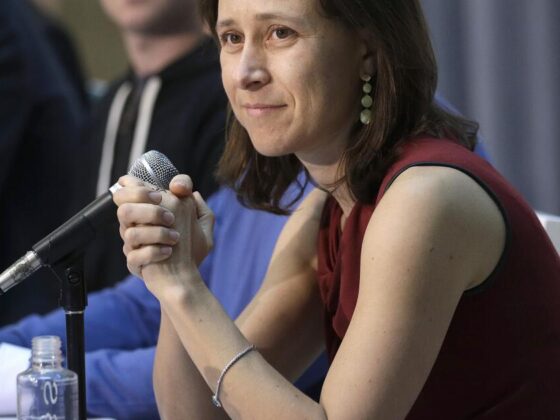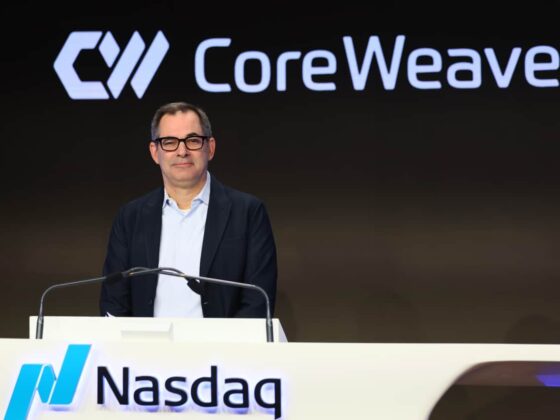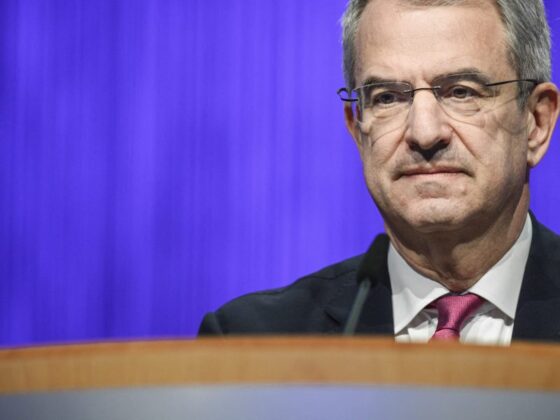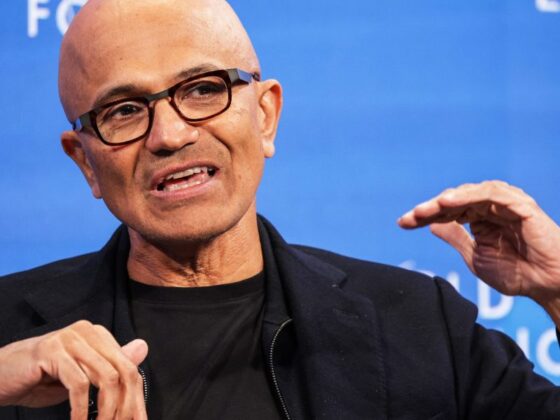Happy Friday! We’re going to try to shift this Q&A feature a bit earlier in the week in the future, but here’s an interview with Rob Gardner, a veteran of the UK investment industry with lots of interesting jobs under his belt.
Gardner co-founded the investment consultancy Redington in 2006, before he left to become investment director of St James’s Place in 2019, and chair of the investment manager Rowan Dartington in 2021. Gardner then left those roles to found Rebalance Earth — a natural capital firm — where he is currently CEO. He also co-founded RedSTART, a financial education charity focusing on primary-school children, and has written books for both children and young adults.
The transcript has been edited for length and clarity.
FTAV: How did you end up in finance?
It goes back to Argentina. My parents moved there in 1985 — they were teachers. Inflation was running at about 30 per cent a month. And every month, my parents would get paid, and we would literally go shopping — like supermarkets sweep — and buy everything. Then at night, we’d drive to this house that looked like something out of Narcos to illegally change their australs or pesos into US dollars. We’d go home, roll them up as a family around the kitchen table, put them in 35-millimetre film cases, and then hide them around the house. Because it was safer to hide your money in dollars in your house than bank it. When we went travelling all over — Bolivia, Peru — I was the money mule. I would carry all the dollars. I was seven years old.
When I moved back to the UK, I assumed everyone understood inflation, and everyone understood FX rates.
When I was doing my A-levels I worked at bureau de change [in France]. People would come in, huge bid offers, and I’d take the money. I’d look up rates on the Minitel, get on a moped with all these pesetas, Deutschmarks, change it all to French francs, bring it back. And because of that I was able to get my first job working at Deutsche Bank on the grad programme — I started out on foreign exchange.
You’re probably best known for having co-founded Redington with Dawid [Konotey-Ahulu]. You were relatively young at the time. I mean, what on earth were you thinking?
I was like 27 years old when I quit. My mum and dad thought I was nuts. I’d gone from Deutsche to Merrill Lynch — which is where I met Dawid. And we thought, “why don’t we start up our own consulting business to help pension funds understand their assets and liabilities — how to manage them both, and control the risks?”
The customer problem was really clear to us. And so at 27 I retired from Merril Lynch — because it let me keep my stock. And in May 2006, Dawid and I co-founded Redington.
How did you win your first clients?
Luck. We’d done our 10,000 hours at Merrill Lynch. Dawid and I had spoken to hundreds of CFOs, group treasurers, trustees, IC, all the investment consultants. We’d been presenting the problems and solutions as Merrill Lynch. People knew who we were.
But I remember someone sat me down, pulled out his business card, and said, “Rob look at this. It’s the bull of Merrill Lynch.” And gives this speech to try and keep me, saying, “No one is gonna speak to you. The only reason people speak to you is because of that. Are you sure you want to throw that all away?”
I suppose we had confidence in our social capital, in our ability to understand the problem, and our ability to come up with a solution. But then this is where luck comes in.
It was 2006. I can’t remember what the deficit of Royal Mail [pension scheme] was. I think it had just come up with a thirteen year recovery plan, which was — at that time — super long. And Frank Schinella, the finance director for Royal Mail, was looking for advisers. They had Rothchilds, they had Barclays. The trustees had Willis Towers Watson, and he wanted someone to be on his side without a conflicted business model. We bought all the expertise and credibility of Merrill Lynch bankers, but we had a business model that wasn’t driven around trying to do transactions. So a great example of right place, right time.
Even now I have a stamp made up with Frank Schinella’s head on it, because I think getting your first client is always the hardest thing in business.
What made you leave the firm that you’d started?
Two things really. Back in 2017, we tried to raise money to grow to the next level. We’d had some PE firms come in and scrutinise the business. They loved the business, they loved that we had all these long-dated relationships with amazing blue-chip clients. The biggest risks they saw in the business was key-man risk in me and Dawid. The question was, “could Redington win clients — could it grow without you in it?”
And as an entrepreneur, that was the point where you have to think — I’m the owner, I’m the co-founder, I’m an equity holder — all these roles start to separate out. And I realised that Redington would be more valuable without me in it.
At the same time, I had a bit of a yearning to be closer to be making the decisions rather than advising on decisions. And it was just serendipity that David Lamb, who was the Director of Investments at St. James’s Place, was retiring.
At the time they were about £100bn [in assets under management], and they were looking for someone to join the executive board. Which also was great for my ego, right? I think when I joined, I was the youngest person on a FTSE 100 executive board — I was 39. And so to be responsible for — at the time — 750,000 clients’ financial outcomes, and £100bn, was attractive and exciting. And being candid, I also wanted to put myself in a position that — if there was a CEO succession — I would be close to that opportunity.
Very shortly after I joined SJP, Redington got two approaches from private equity firms. And at the end of 2019, Phoenix Equity Partners invested in Redington. So my thesis was correct.
How did you find the shift from being an founder to being a FTSE 100 company executive committee member?
That was another reason for doing it — could I scale culture, could I create transformation? It’s very different — they were an almost 30 year old company. Could I bring my approach?
I was described as Che Guevara in disguise. One of my colleagues said, “you managed to get more change in the four years you were there, than in a decade.” So, it was challenging, for sure, very different.
Obviously, you’re not the boss, you’re a listed company. I think SJP gets a lot of scrutiny — I think somewhat unfairly sometimes. But it’s the biggest and most successful wealth manager, and so incredibly demanding. It was me who had to make the call on Woodford. I had to make the call on Magellan.
We went from being a single fund manager, bottom-up manager selection firm, to a top down strategic asset allocation, portfolio construction one, launching the world’s largest low carbon equity fund at COP 26 — the first wealth manager globally to sign up to GFANZ [the Glasgow Financial Alliance for Net Zero]. We did a whole load of cool stuff that we never got to tell the world about.
It’s pretty exciting when you start thinking in units of billions. I built a capacity model out to a trillion. Because SJP will grow.
When we terminated Magellan the week before Christmas, we had to move £10bn. And these were intellectual challenges I really enjoyed.
How do we design our fund range to meet the demands of a million different clients? We had clients who were babies and we had clients that were 100 years old — clients in every corner of the UK.
And the thing people don’t realise is that SJP is the largest payer of people in pensions, of any provider in the UK. We were paying out over a billion a month of pensions in payment, which is why we had to start thinking about decumulation and drawdown funds and why we launched our in-retirement fund way ahead of anyone else.
You’ve now set up a natural capital firm — Rebalance Earth. What is ‘natural capital’?
Natural capital is investing in nature to derive a financial return. We try and position nature as resilience through a climate and nature problem that I think is not fully understood by financial markets.
Nature has all of these ecosystem services — it cleans water, it stores water, it provides biodiversity that underpins everything that we do. And so you can start to think of it as infrastructure in the same way that building a port is infrastructure. If you can get paid for those ecosystem services, that makes it an investable asset class.
So, our job is to invest in nature as infrastructure. It delivers financial returns, it delivers environmental returns, and it also delivers social returns, because it improves peoples’ health and wellbeing and it creates jobs.
Can you unpack that a bit more?
Most payment for nature exists in a compliance market — either carbon credits from net zero or biodiversity net gain, which is something that you have to fund if you want to do property development. And over a 15 year term — which will be the length of our first fund — there is a risk that there’s a change in political regime and [the rules] get ripped up. So we’re always searching for people who will pay for nature because they want to and need to, and not because they’re forced to.
A water utility will pay to treat the water. The question is, do they build something out of concrete and steel and chemicals and energy to clean the water? The alternative is that we could restore a whole load of peatland and use a whole load of Sphagnum moss and it could clean the water for them. It does a better job than the incumbent manufactured concrete and steel solution.
I think what we’re trying to do is get companies to recognise their climate and nature-related risks and dependencies, and then understand that nature is a really good offset or hedge to that, and then connect the two and get them to pay for that — and make sure we contract that all properly.
You’ve authored a children’s book about saving and also co-founded RedSTART — a financial education charity. Was that born out of your childhood experiences with inflation in Argentina?
Yeah, exactly that. I remember starting at uni and being surprised that people didn’t know how to budget, didn’t know how to save. My theme is all about earn it, keep it, grow it. And so my parents showed me the power of earning money and keeping it, but they didn’t understand the power of growing it. They just used to put it in the bank. When I went to work in investment banking, suddenly there was this idea that you could invest in equities and in bonds and that you could grow your money.
And I suppose what I realised early on in my career is that there was this sort of secret playbook that showed you how to make money, but, ordinarily, people didn’t know how to do it. And I felt very strongly that wouldn’t it be cool if you could teach people that?
So in 2012 when auto-enrolment kicked in, we at Redington wanted to give back. We knew that people who had a DC pension were in a very different position to those on a final salary pension — at a time when people had no idea the difference between the two. What if we could teach the next generation how money works?
Those kids that [RedSTART — the financial education charity] first taught are now 24, 25 years old. So that’s our theory of change. It’s like, “what if people could be confidently in control of their financial future?”
And then when I became a dad and my first daughter was born, that inspired me to write “Save Our Acorns”, and then during Covid, whilst everyone was making banana bread and learning to play the guitar, I wrote “Freedom” [a book for young adults].
Last question — if you were going to do something completely different outside of finance, what would it be?
An author writing more books — I’d like to write a Fantastic Mr. Fox equivalent, but about beavers saving a town. Or a geography teacher.













